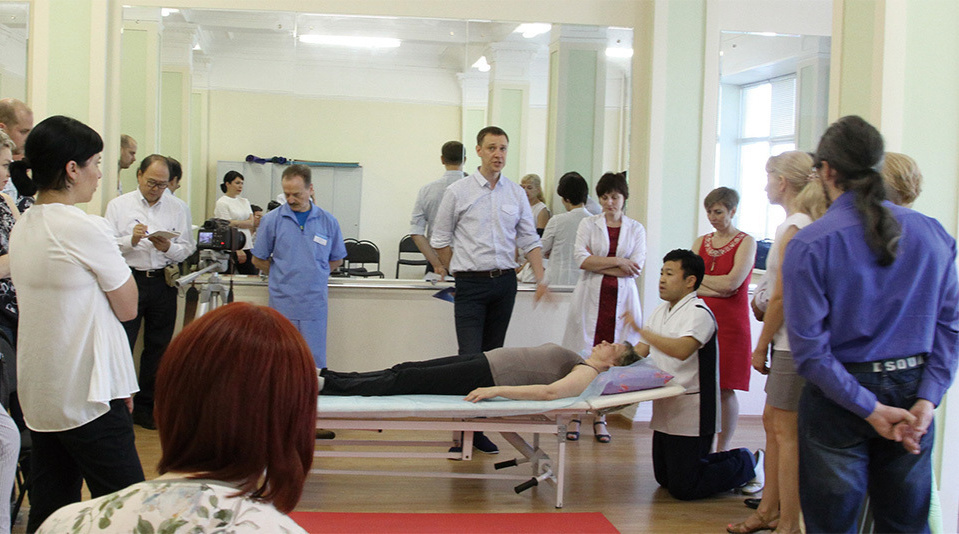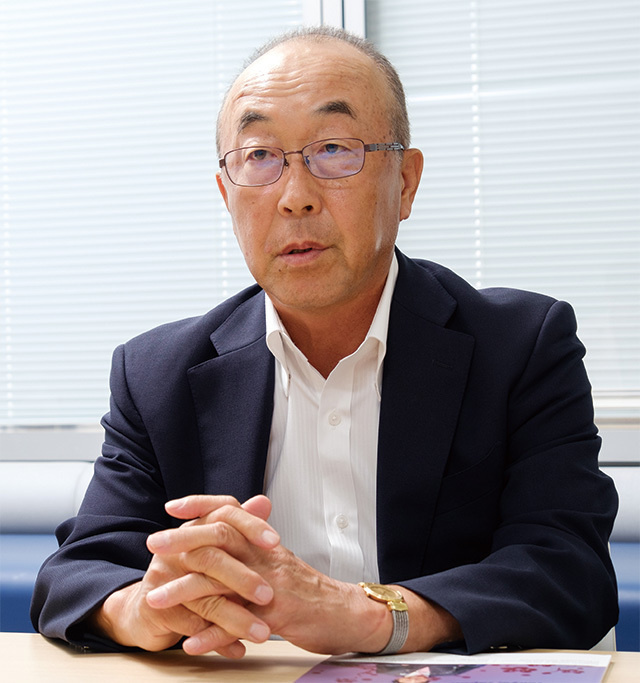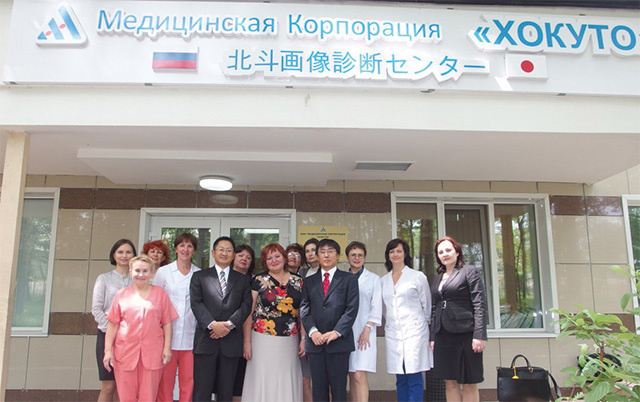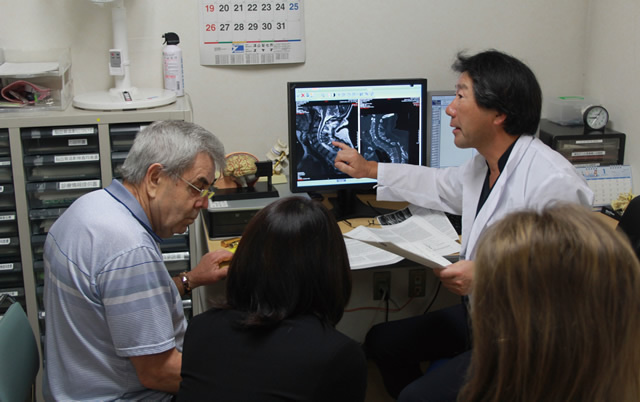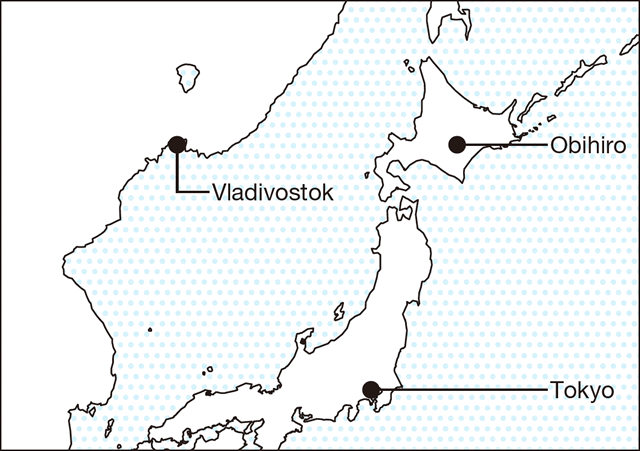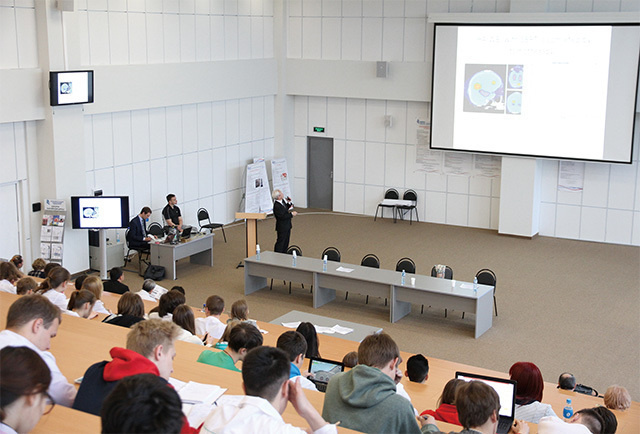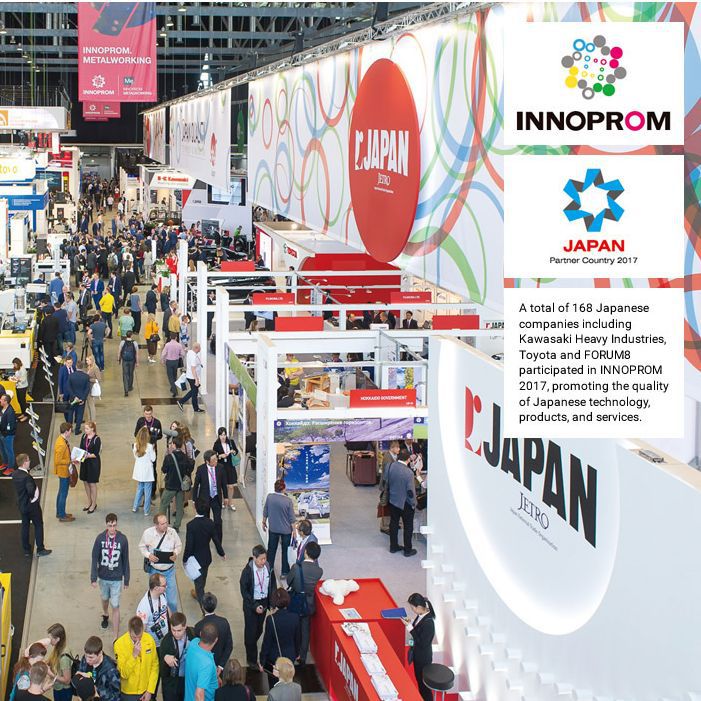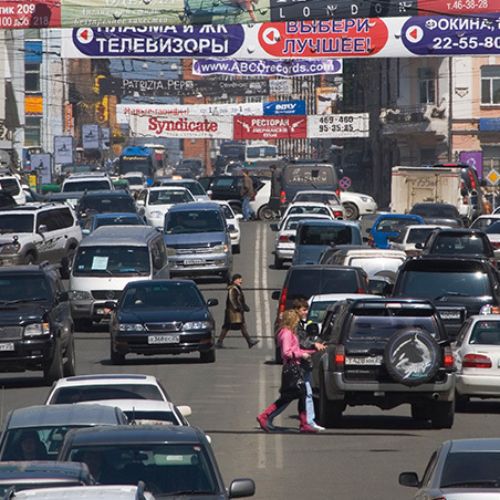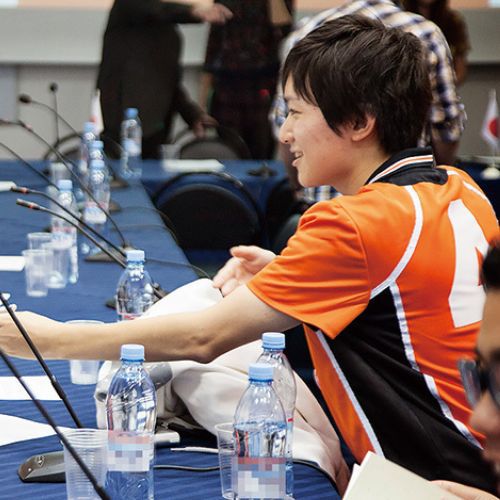In 1990, a three-year-old boy on Sakhalin Island received burns to 90% of his body. In response to a request from those on the island, the Japanese government promptly decided to accept the child for treatment without a visa. The child was urgently transported to Sapporo Medical University Hospital where he underwent a skin grafting surgical operation that saved his life.
Dr. Hajime Kamada, chairperson of the Board of Directors for Hokuto Social Medical Corporation which manages Hokuto Hospital in the city of Obihiro in Hokkaido, recalls: “Because the treatment was done at my alma mater, it made me start to feel that I have a close connection with Russia.”
Hokuto Hospital focuses its effort on preventive health care through detecting illnesses at an early stage and preventing the onset of symptoms. In May 2013, Hokuto Hospital established the Hokuto Diagnostic Imaging Center in Vladivostok, Russia’s Far Eastern neighbor to Hokkaido. The center was established to internationally promote health and longevity throughout society, in line with the Japanese government’s efforts to promote overseas expansion of Japanese medical care. According to Dr. Kamada, “Preventive medical care, such as undergoing examinations and treatment before the appearance of symptoms, was not practiced very widely in the region. By examining the brain, heart, and other areas with magnetic resonance imaging, computed tomography and ultrasonography, early detection and treatment of serious illnesses become possible.” Japanese engineers and Russian physicians are permanently stationed at the diagnostic imaging center. In addition, the image data is forwarded to Hokuto Hospital in Japan, allowing doctors from both Japan and Russia to double check the data. Dr. Kamada further explains, “Russian patients also undergo surgery at Hokuto Hospital. Since the progress after surgery can be observed at the diagnostic imaging center, the patients only require a short-term stay in Japan.”
Dr. Hajime Kamada
Born in 1950, and raised in Horokanai-cho in Uryu-gun, Hokkaido. Chairperson of the Board of Directors for Hokuto Social Medical Corporation. Graduated from Sapporo Medical University, after which he pursued a career as a physician. Since founding Hokuto Hospital in 1993, he has played a key role in the hospital’s growth as the region’s leading general hospital.
Dr. Kamada also adds, “Our medical activities in Russia, together with our contact with patients and medical staff members, have led to us discovering a need for rehabilitation medical treatment.”
Hokuto Hospital has long been involved in rehabilitation medical treatment. Based on a concept of reconstructing the neural circuit to treat physical function disorders brought about by nerve abnormalities such as a cerebrovascular disease, the hospital combines various techniques to create individual programs for each patient. To bring this method to Russia and contribute to the health of local residents, Dr. Kamada decided to open a rehabilitation center in Vladivostok.
The construction of this center is part of the eight-point cooperation plan, and during President Putin’s visit to the Japan-Russia Business Dialogue held in 2016, it was agreed that the enterprise would be carried out as a joint project with the government of the Primorsky Krai province where it is to be located. With the support of the Japanese and Russian governments, construction of the facility is currently in progress. Construction will be completed in October 2017 and the center is scheduled to open in early 2018.
Dr. Kamada states, “Through our series of projects together, I feel that the Russian people trust Japan deeply, and we respond with sincerity. For the future, I hope to continue to contribute through medical care towards improving the Russian people’s quality of life.”

























